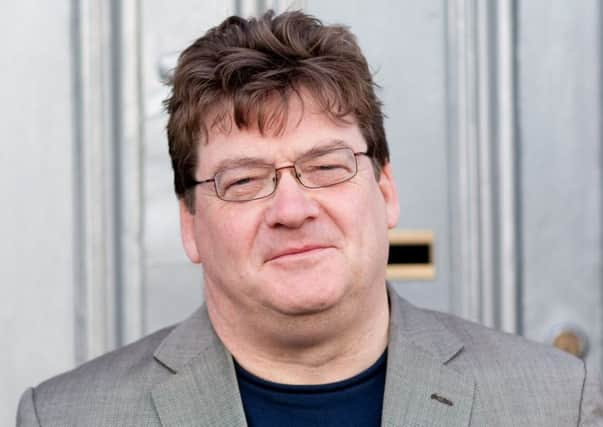Book review: Havergey, by John Burnside


John Burnside has already brought out a novel and a poetry collection this year, and now here’s his third book in just under three months – a slight yet intriguing curiosity released by the innovative, subscriber-supported indie publisher Little Toller. Part of a series of monographs dedicated to “writing attuned to the natural world” it uses a rather hastily established time travel device to catapult its present day protagonist, John, into the year 2050. This experimental leap forward has taken place on a fictional Scottish island called Havergey, and, while John’s eyebrow-raisingly bland instructions are to find out what the weather is like in the future, and, if possible, work out a way of relaying that information back to the present, when he emerges from his time capsule (jokingly referred to as “Tardis B” and knowingly modelled on the police box from Doctor Who) he soon discovers that climate change is the least of humanity’s concerns. Thanks to a “Watcher” called Ben – a Havergey resident who insists he spends a few days in quarantine before being allowed to see the rest of the island – John hears about “The Collapse”, which began in 2024 when several waves of disease swept the globe, “killing an estimated ninety percent of the population.” From the year 2041 onwards, we learn, survivors started arriving on Havergey, fleeing non-specific unpleasantness on the mainland, and gradually a community began to take shape: mindful, self-sufficient, ecologically aware; peaceful, but also well-versed in martial arts, just in case of some future threat.
As part of his orientation while in quarantine, John is expected to read the sacred texts in “The Archive” upon which Havergey’s apparently utopian society has been based – diaries and essays written by some of the island’s pre-Collapse inhabitants. Through these, he gradually builds up a picture of the various intrigues surrounding the despicable former owner of the Havergey estate, Hugh Follansbee, his daughter Chloë, John the gardener (later elevated to the status of John The Gardener by Havergey’s post-Collapse community) and others. Could Follansbee have been the victim of foul play, John wonders. And if he was murdered, given his various crimes, and given the apparently idyllic state of the island now, could such an act be said to have been justified?
Advertisement
Hide AdThe bulk of the book consists of extracts from the Archive interspersed with exchanges between John and Ben, in which the latter attempts to describe the Havergey of the present and explain the philosophy that underpins it. You can feel Burnside (who teaches a course on Literature and Ecology at the University of St Andrews) really enjoying himself here, often putting contemporary arguments into the mouths of his protagonists. The island of Havergey, notes John, was previously “under the jurisdiction of a country known as Scotland, a formerly proud nation, now so politically compromised that, not so very long before The Collapse, a foreign billionaire could arrive out of the blue and not only demand the right to build a luxury golf course over one of the most beautiful areas in the country... but also, to cap it off, successfully persuade the government of the day to throw its full legal weight behind him.” There’s a sense, too, in which the author is setting a puzzle for his readers. In many ways, the isolated Havergey of hard work and wholesomeness he creates is exactly the kind of seductive utopia the post-Green writer Patrick Kingsnorth seems to be advocating in his recent Essays of a Recovering Environmentalist. But, as the narrator asks Ben, does the creation of such an Earthly paradise excuse murder, even the murder of somebody as deeply unpleasant as Hugh Follansbee? And, to scale that question up, is there not something a little sinister about the kind of environmentalism that seeks to cut itself off from the rest of the world and exist in a vacuum, recognising that terrible things are happening to people elsewhere, but never attempting to do anything about it?
Havergey is published by Little Toller, £12